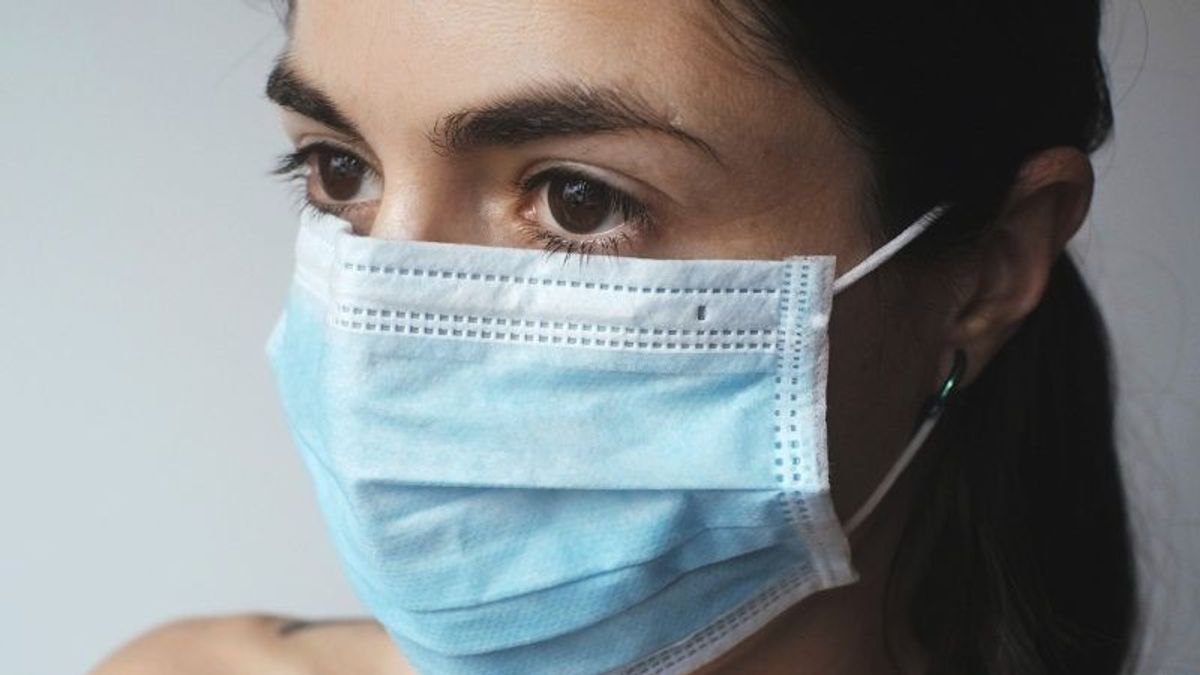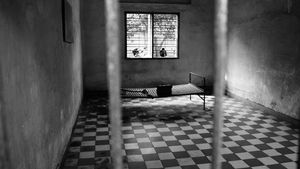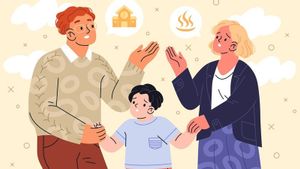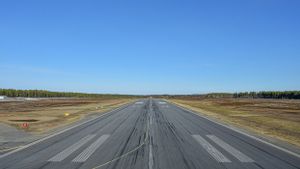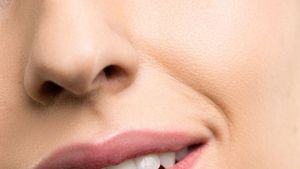JAKARTA - Professor of the Faculty of Medicine, University of Indonesia, Prof. Tjandra Yoga Aditama, is of the opinion that medical masks are still relevant to be worn by people going home at this time.
"Medical masks are certainly still relevant for going home," he said as quoted by Antara, Sunday, April 14.
However, according to Prof. Tjandra, who once served as Director of Infectious Diseases of WHO Southeast Asia, said people are better off wearing masks such as KN95 or N95 and this depends on how big the risk of transmission is.
"Medical masks are certainly good, if you want better then use KN95 or N95, this depends on how big the risk of transmission is," he suggested.
Minister of Health Budi Gunadi Sadikin previously appealed to the entire community to remain disciplined in wearing masks, including ahead of Eid in 2022 even though the confirmed cases of positive COVID-19 in the country are said to be lower than in other countries. By wearing masks, people can be protected from COVID-19 transmission. so that they can carry out their commuting activities safely.
Then, regarding the use of masks when people start to take off their masks, or what can be called one-way masking as popularized by a number of health experts in the West, the question arises whether masks are still effective for the wearer?
According to Christopher Sulmonte, MHA, an expert on masks from the Johns Hopkins Biocontainment Unit, MHA, wearing a mask while those around you are not wearing it is still significant for you to be protected from COVID-19.
This is because the mask filters various respiratory droplets as well as particles released by those around you. Of course, if you wear a mask that fits your face and not just one layer.
"For example, in a health care setting where staff interact with unmasked and highly infectious patients for long periods of time, we have seen how effective the use of masks can be in protecting healthcare workers from exposure and infection to a variety of infectious diseases, including COVID-19," Sulmonte explained as quoted from Health, Sunday, April 24.
While efforts to avoid COVID-19 and other respiratory illnesses stem from everyone wearing a mask correctly, there is plenty of data showing that wearing a mask can protect the wearer, even in places where others are not wearing a mask, according to the Program Director of the COVID-19 Response Team 19 at the University of California, Irvine, David Souleles, MPH.
Souleles refers to recent research from the United States Centers for Disease Control and Prevention (CDC) that says people who consistently wear comfortable, well-fitting masks are less likely to get COVID-19 than those who don't regularly wear masks.
Baca juga:
While many studies have shown that masks protect people who wear them, the level of protection depends on the type of mask, the material of the mask, how consistently people wear it, and the level of infection in the community, according to Director of the Department of Health and Emergencies at Staten Island University Hospital, Eric Cioe-Peña, MD. Regarding the type of mask, types such as KN95 or N95 can significantly protect the wearer from COVID-19, even if other people do not wear masks.
"One person wearing KN95 did better in some studies than both people wearing a surgical mask, although there is still some one-way protection for surgical masks as well," he said.
The CDC states, high-quality respirators such as KN95 or N95 provide the best protection from respiratory infections. While surgical masks and cloth masks still offer some protection to the wearer, they must be worn properly (no gaps, wetness or dirt).
In order to prevent being exposed to COVID-19, in addition to wearing masks, referring to Circular Letter Number 16 of 2022 concerning Travel Provisions for Domestic People During the COVID-19 Pandemic, the public is also advised to apply other health protocols, namely washing hands regularly using water and soap or hand sanitizer. sanitizer, especially after touching objects that other people have touched.
Then, it is also necessary to maintain a minimum distance of 1.5 meters from other people and avoid crowds, not to speak one-way or two-way by telephone or in person throughout the journey using public transportation modes by land, rail, sea, river, lake, crossing, and air.
Another advice is not to eat and drink during the flight journey for a journey of less than 2 hours, except for individuals who are obliged to take medicine for treatment which if not done can endanger the safety and health of the person.
The English, Chinese, Japanese, Arabic, and French versions are automatically generated by the AI. So there may still be inaccuracies in translating, please always see Indonesian as our main language. (system supported by DigitalSiber.id)
